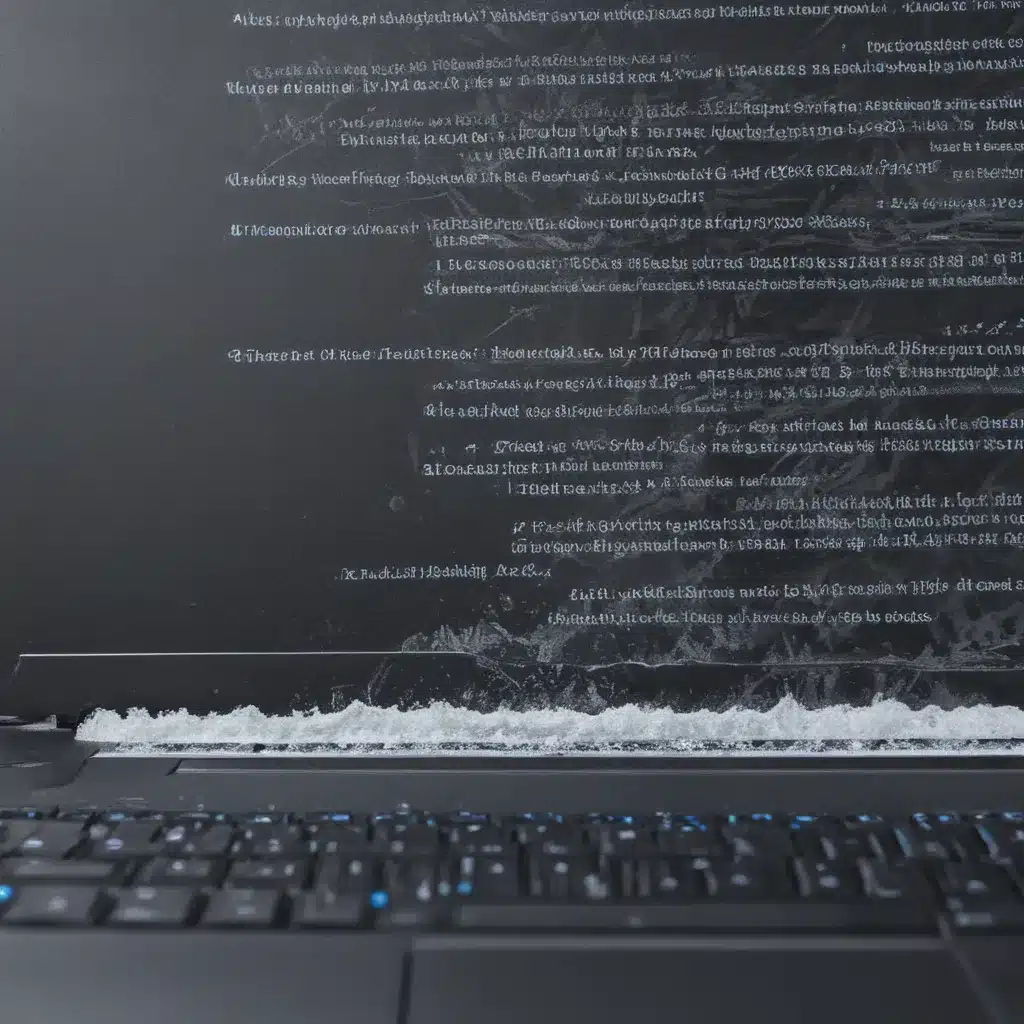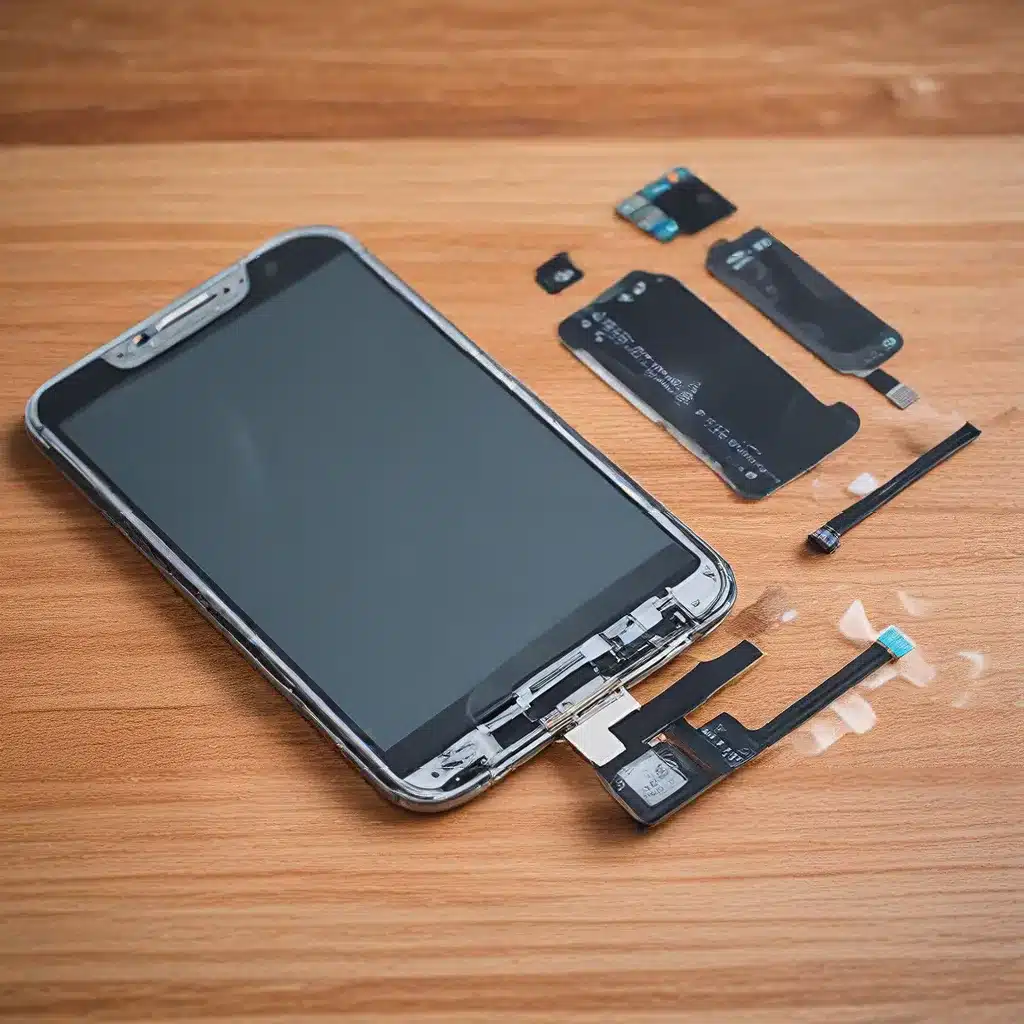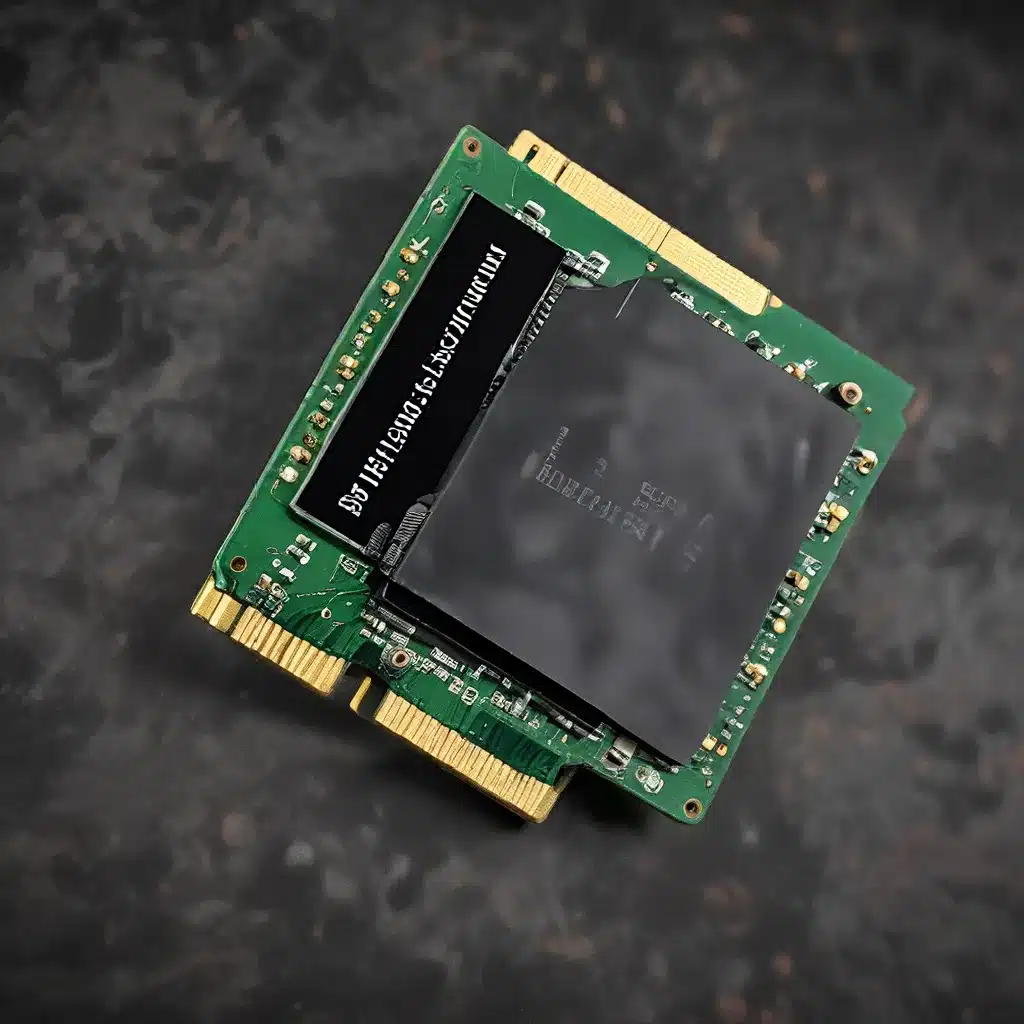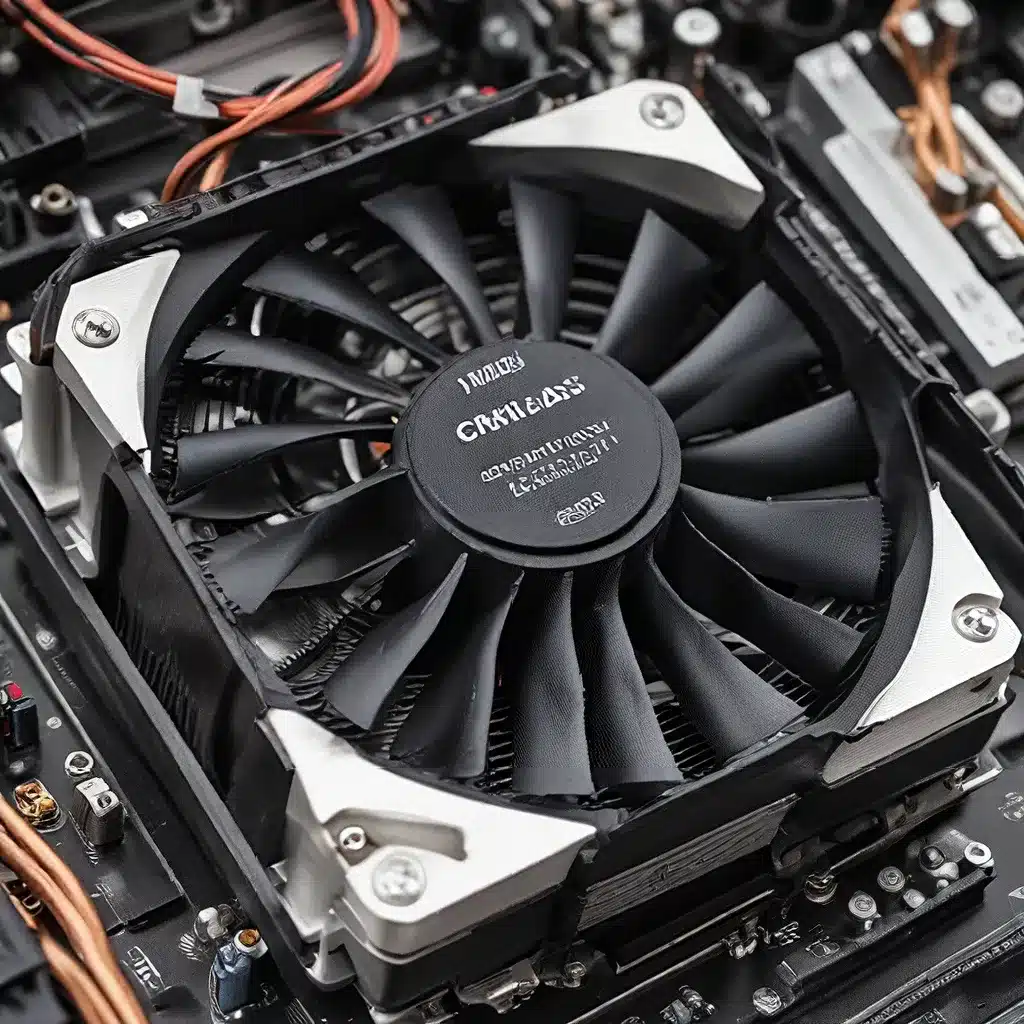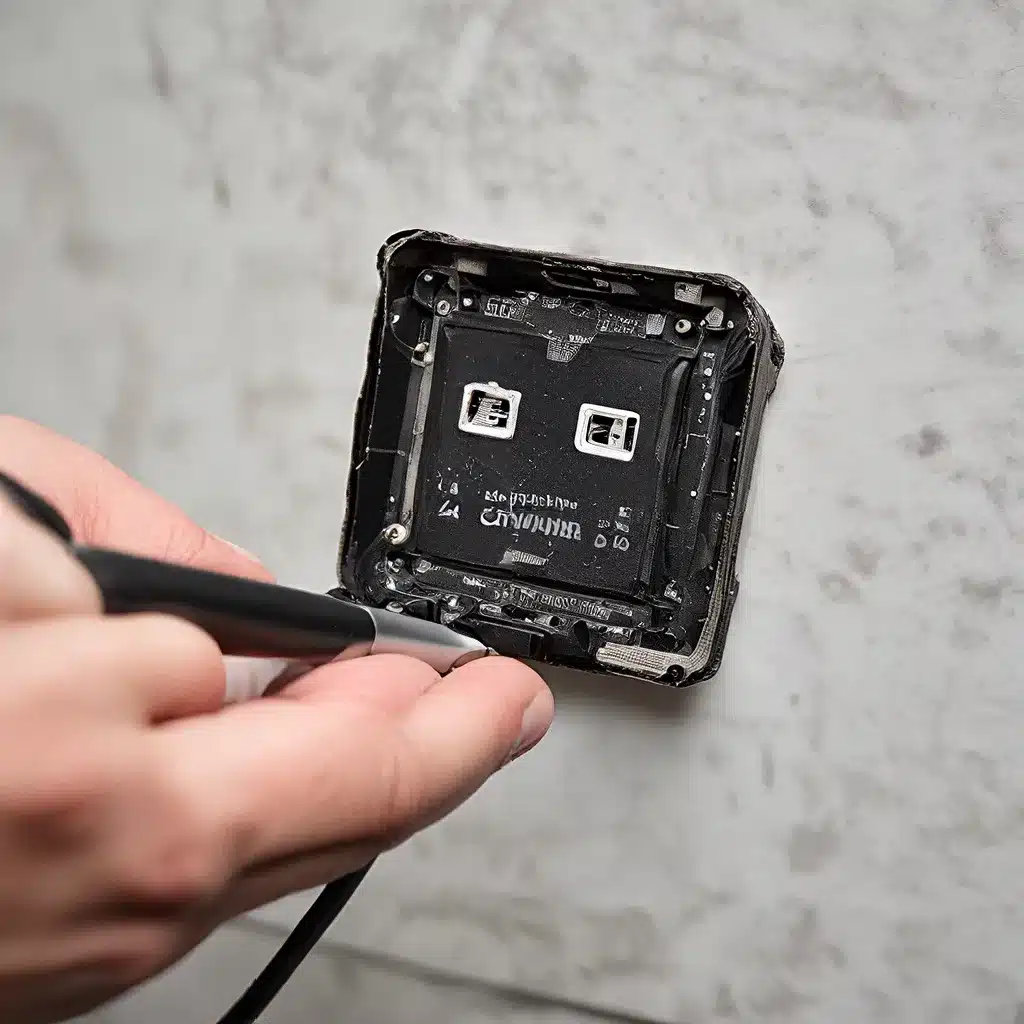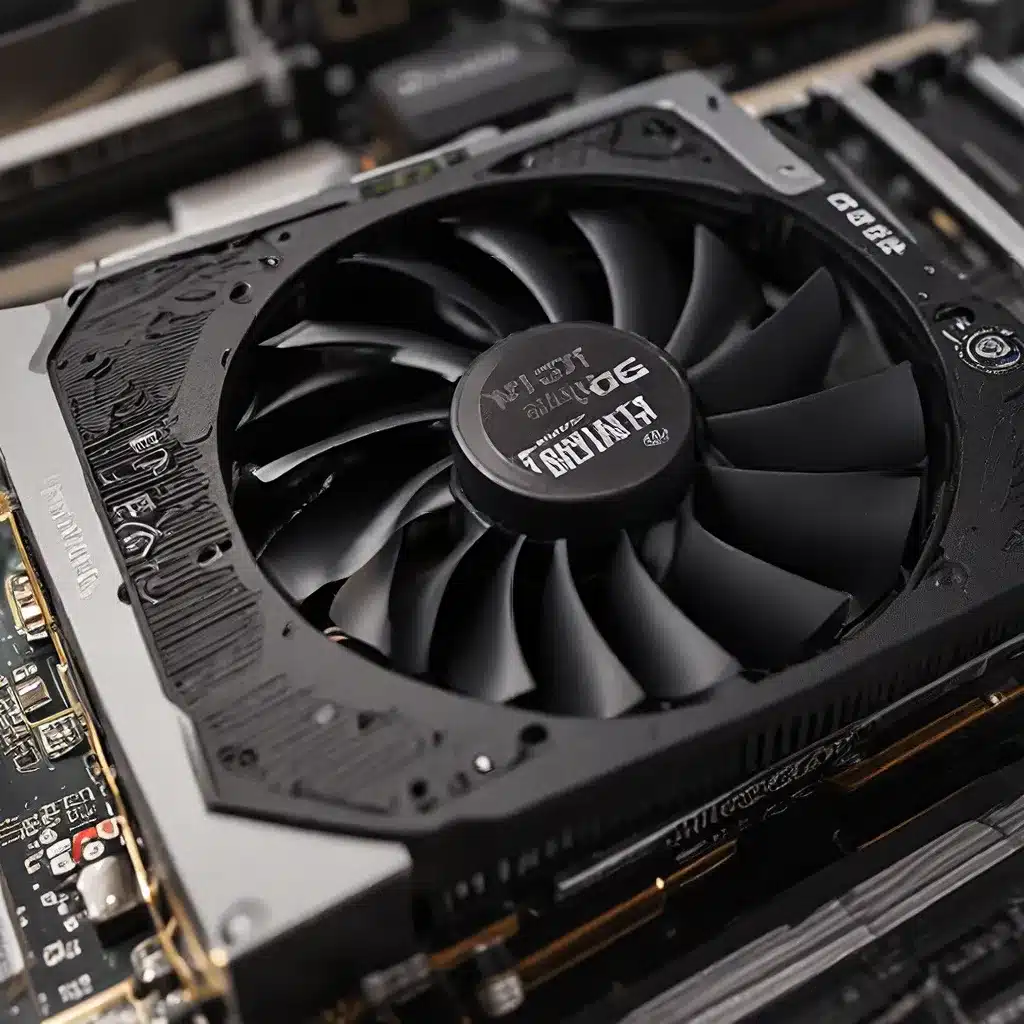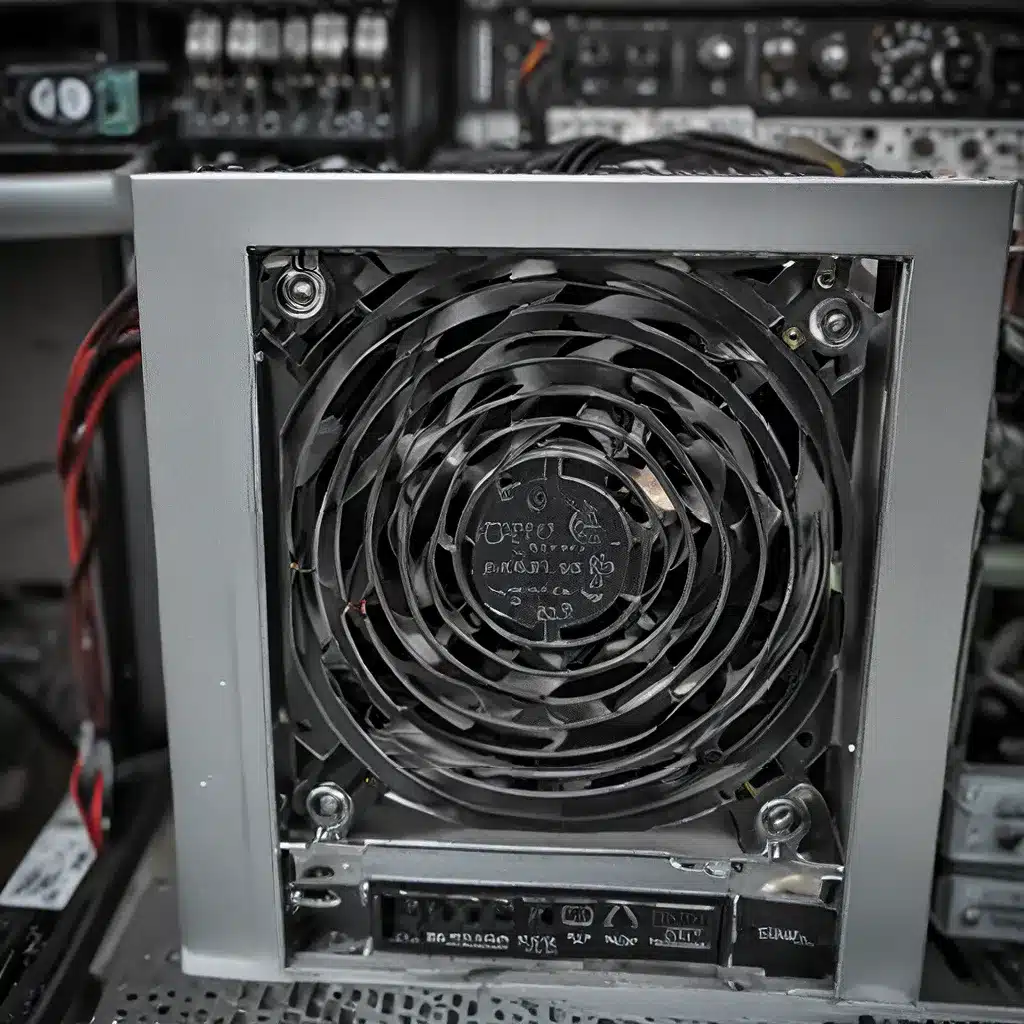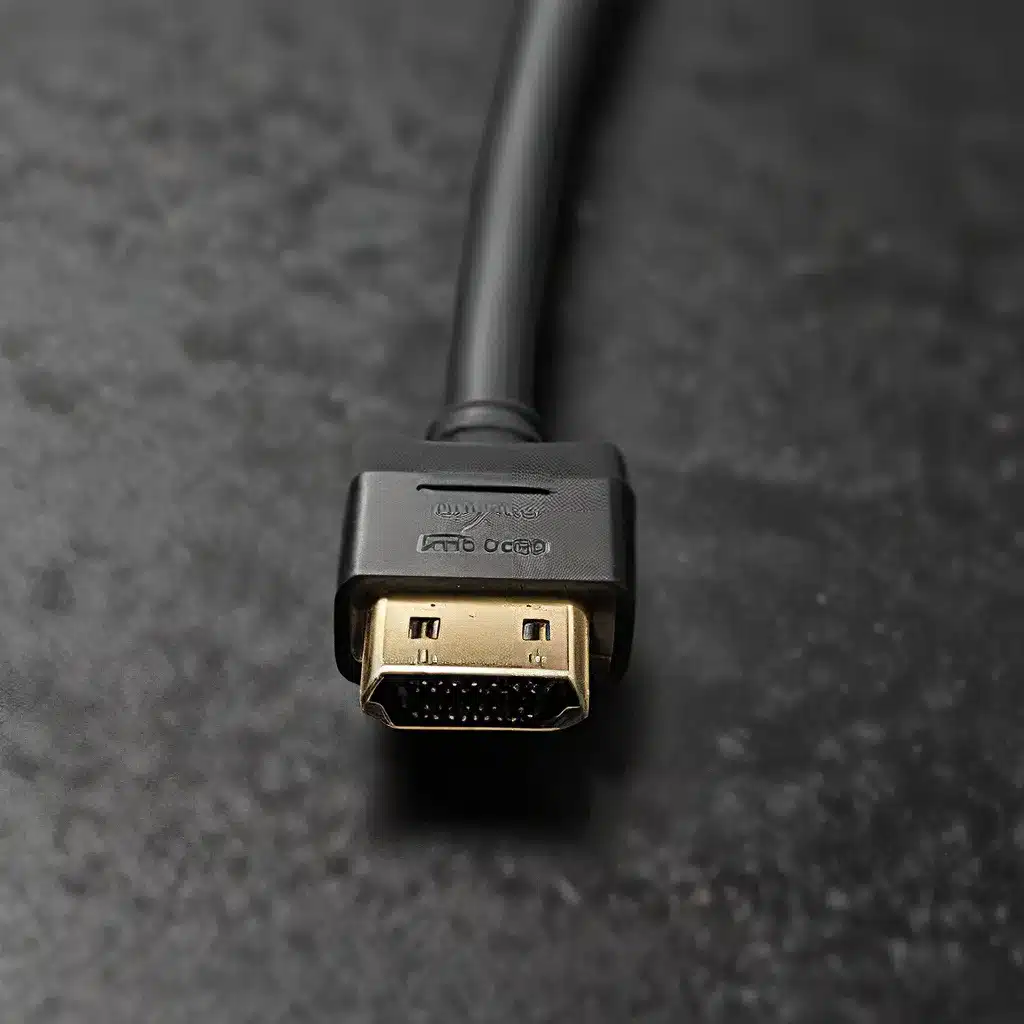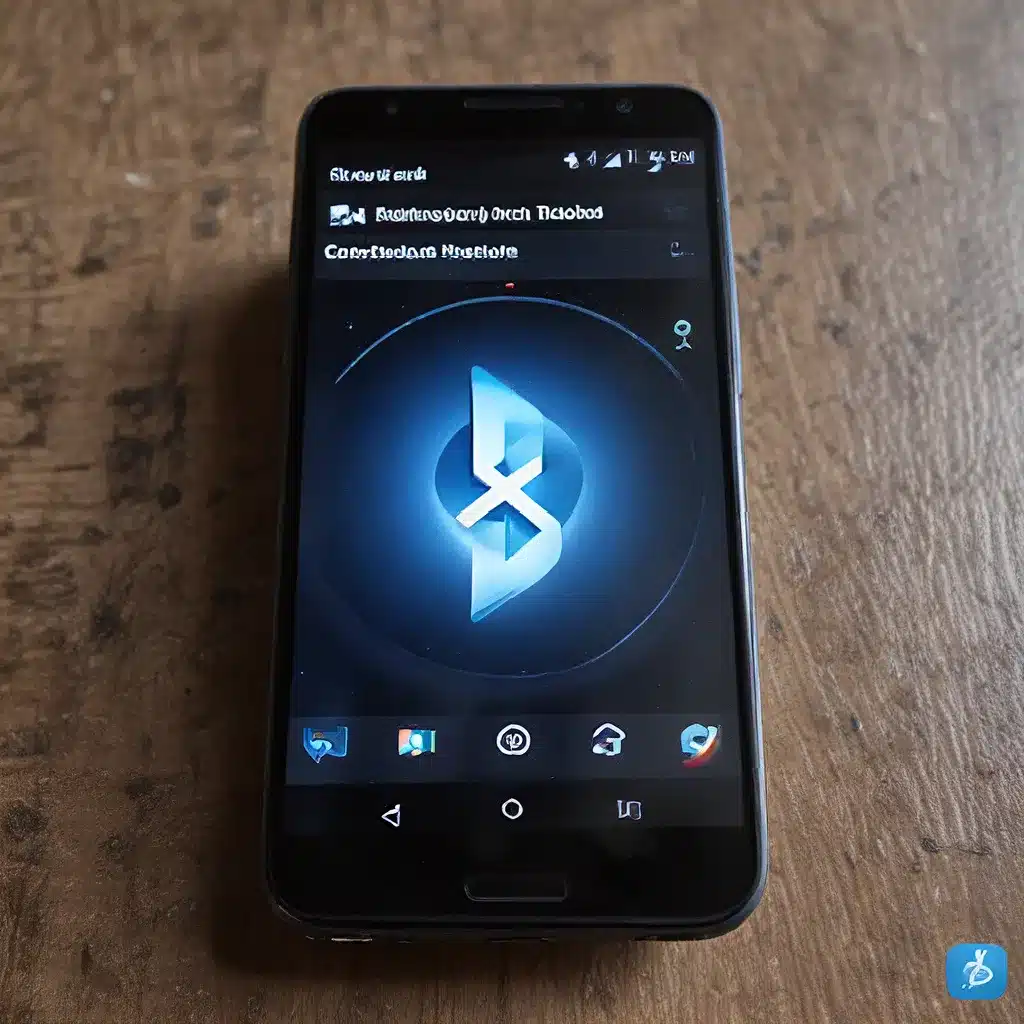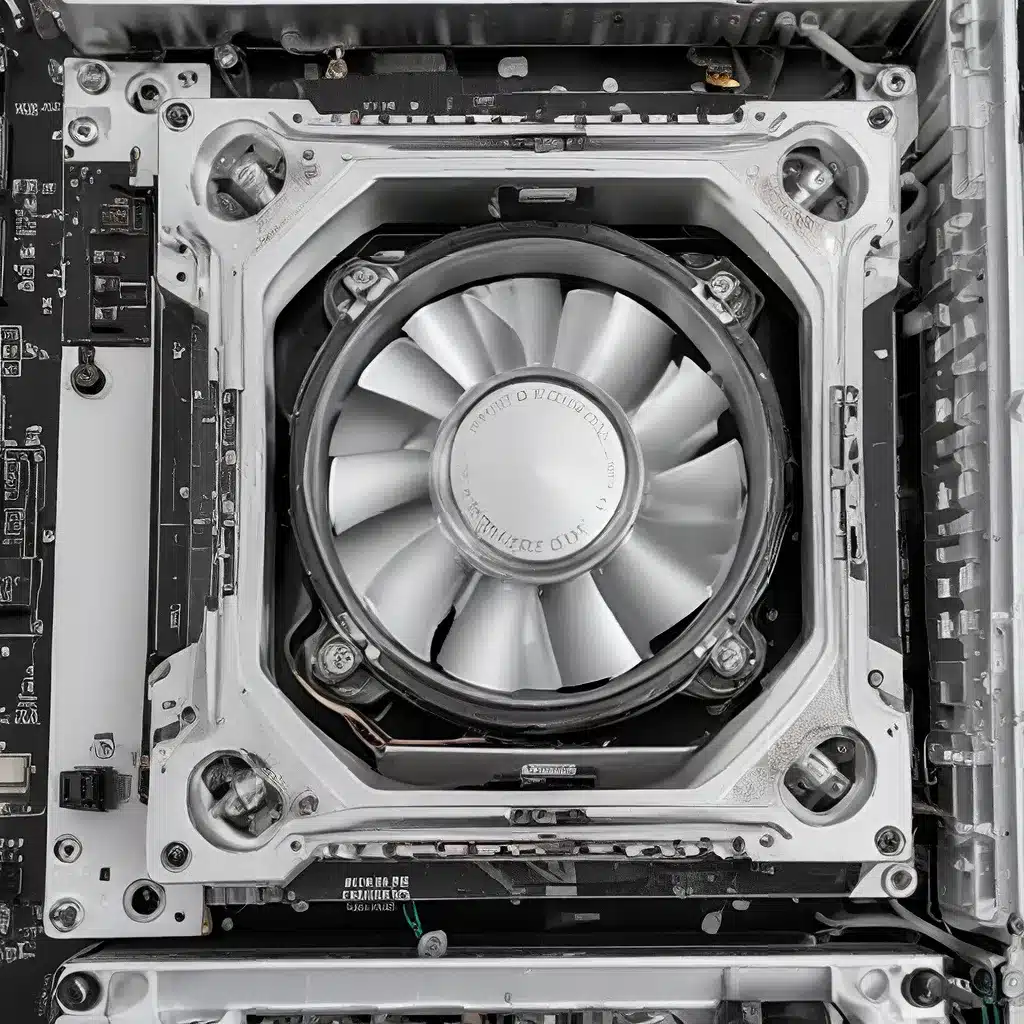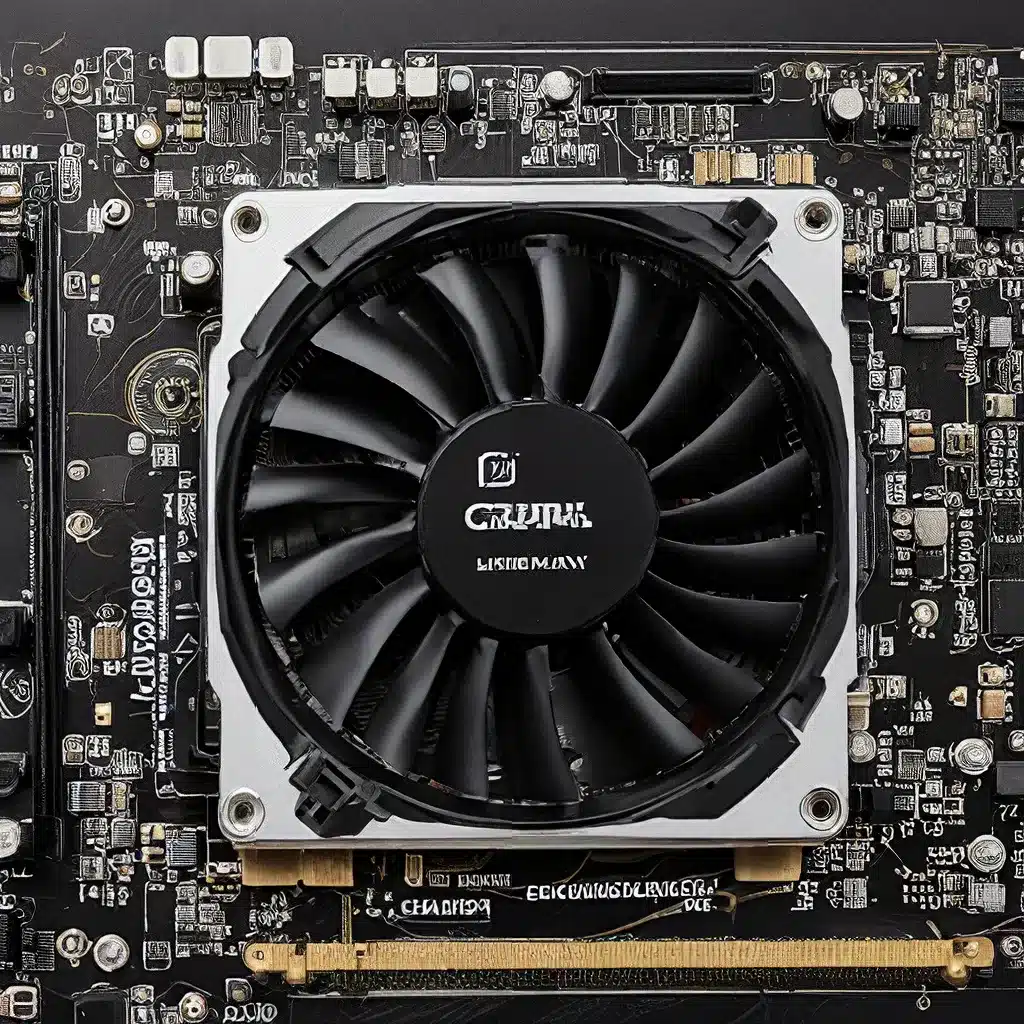Laptop Freezes and Crashes: A Frustrating Predicament
Oh, the joys of modern technology – laptops that freeze like a deer caught in the headlights, screens that blackout without warning, and applications that crash more often than a clumsy skydiver. If you’re a laptop user, you’ve undoubtedly experienced the agony of a system that decides to take an unplanned siesta, leaving you staring at the screen in utter bewilderment.
Well, my friends, fear not! I’m here to share my hard-earned wisdom and guide you through the minefield of laptop freezes and crashes. As a seasoned computer repair technician in the heart of London, I’ve seen it all – from overheated CPUs to corrupted software, and everything in between.
So, let’s dive in and uncover the secrets to keeping your laptop as smooth and stable as a freshly waxed bowling ball. Buckle up, because we’re about to embark on a journey to Laptop Freeze-free Land!
Identifying the Culprit: Unveiling the Root Causes
Before we can start fixing the problem, we need to understand what’s causing it in the first place. Laptop freezes and crashes can stem from a variety of issues, each with its own unique set of symptoms and solutions. Let’s take a closer look at the most common culprits:
Hardware Woes
One of the primary suspects in the case of the freezing laptop is the hardware itself. Think about it – your laptop is a delicate symphony of components, all working in harmony to bring you the digital bliss you crave. But, just like a temperamental orchestra, one out-of-tune instrument can throw the whole performance into chaos.
For example, a dying hard drive [1] can cause your system to stutter and freeze, as it struggles to read and write data. Or, an overheating CPU [2] might trigger thermal throttling, slowing your machine to a crawl. Even a faulty RAM module [3] can send your laptop into a spiral of unexpected shutdowns and crashes.
Software Snafus
But hardware isn’t the only villain in this story. Sometimes, the software running on your laptop can be the root of the problem. Outdated drivers, conflicting programs, and even pesky malware can all contribute to those dreaded freezes and crashes.
Imagine your laptop as a well-oiled machine, with each program and driver working together like a well-choreographed dance. But when one of those “dancers” decides to go rogue, the whole performance descends into chaos. [4] Suddenly, your once-reliable system is freezing at the most inopportune moments, leaving you to wonder what on earth is going on.
The Dreaded Windows Woes
And let’s not forget the elephant in the room – the operating system itself. Windows, bless its heart, can be the source of many a laptop-based headache. From incompatible software to system updates gone awry, Microsoft’s flagship OS can be a veritable minefield of potential problems.
Imagine your laptop as a delicate flower, and Windows as the gardener. Sometimes, the gardener gets a little too enthusiastic with the pruning shears, and before you know it, your flower is lying on the ground, petals scattered everywhere. [5] Similarly, a Windows update that doesn’t play nicely with your hardware or other software can send your laptop into a tailspin of freezes and crashes.
Diagnosing the Issue: A Step-by-Step Approach
Now that we’ve identified the potential culprits, it’s time to put on our detective hats and start investigating. Solving the mystery of the freezing laptop requires a systematic approach, so let’s break it down into a few key steps:
Step 1: Isolate the Problem
The first step in troubleshooting is to determine whether the issue is hardware or software-related. This can be done by running some basic tests and checks. For example, you can try booting your laptop in Safe Mode [6] to see if the freezes and crashes persist. If the problem goes away in Safe Mode, it’s likely a software issue.
Step 2: Dive into the Details
Once you’ve narrowed down the cause, it’s time to dig deeper. If it’s a hardware problem, use tools like CPU-Z [7] and HWMonitor [8] to check the health of your components. Keep an eye out for high temperatures, failing hard drives, or malfunctioning RAM.
On the software side, use tools like Event Viewer [9] and BlueScreenView [10] to analyze any error messages or crash reports. These can provide valuable clues about the underlying issue.
Step 3: Tackle the Problem
Armed with your newfound knowledge, it’s time to put on your problem-solving hat. Depending on the diagnosis, the solution may involve anything from a simple driver update to a more complex hardware repair.
If it’s a software issue, try reinstalling problematic programs, updating your drivers, or even performing a clean install of Windows. [11] For hardware problems, you may need to replace a failing component or tweak your BIOS settings to optimize performance.
Troubleshooting Techniques: Tried and True Methods
Now that you’ve got a solid understanding of the potential causes and a step-by-step approach to diagnosis, let’s dive into some specific troubleshooting techniques you can use to tackle those pesky laptop freezes and crashes.
Taming the Thermal Beasts
One of the most common culprits behind laptop freezes and crashes is overheating. When your CPU or GPU starts to overheat, your system will automatically throttle performance to prevent damage, leading to those dreaded freezes.
To combat this, make sure your laptop’s vents are clear and unobstructed, and consider using a cooling pad [12] to help dissipate the heat. You can also try adjusting your power settings to limit CPU and GPU usage, or even explore undervolting [13] to reduce the amount of heat generated.
Conquering Corrupted Software
If you suspect a software issue, start by running a comprehensive virus and malware scan. Pesky bugs and viruses can wreak havoc on your system, causing all sorts of crashes and freezes.
Once you’ve eliminated the malware threat, take a look at your installed programs. Uninstall any unused or suspicious applications, and make sure your drivers are up to date. [14] You can also try performing a clean reinstall of Windows to start fresh and eliminate any lingering software issues.
Mastering Memory Management
Faulty RAM can be a sneaky culprit behind laptop freezes and crashes. To rule out this possibility, you can use a tool like Memtest86 [15] to test your RAM modules for errors.
If the tests reveal any issues, you may need to replace the affected RAM sticks. But before you go that route, try disabling any overclocking or XMP settings in your BIOS, as these can sometimes cause instability and lead to crashes.
Taming the Windows Beast
As we mentioned earlier, Windows can be a tricky beast to tame. If you’re still experiencing freezes and crashes after tackling the hardware and software issues, it’s time to turn your attention to the operating system itself.
Start by checking for any pending Windows updates and make sure your system is fully up to date. [16] You can also try running the Windows System File Checker [17] to scan for and repair any corrupted system files.
And if all else fails, don’t be afraid to take the nuclear option – a clean reinstall of Windows. [18] While it may seem daunting, a fresh installation can often resolve deep-seated Windows issues that could be the root cause of your laptop’s freezing and crashing woes.
Putting It All Together: A Comprehensive Solution
Phew, that was a lot of information to digest, but fear not – I’ve got your back. Let’s take a step-by-step look at how you can put all of these troubleshooting techniques together to solve your laptop’s freezing and crashing problems once and for all.
-
Identify the Culprit: Start by isolating the issue as either a hardware or software problem. Run your laptop in Safe Mode and see if the freezes and crashes persist.
-
Dive into the Details: If it’s a hardware issue, use diagnostic tools to check the health of your components. For software problems, analyze any error messages or crash reports to pinpoint the underlying cause.
-
Tackle the Problem: Based on your findings, take the appropriate action. This could involve replacing a faulty component, updating drivers, or even performing a clean reinstall of Windows.
-
Tame the Thermal Beasts: Make sure your laptop’s vents are clear and consider using a cooling pad to keep those temperatures in check.
-
Conquer Corrupted Software: Run a comprehensive virus and malware scan, and uninstall any problematic programs. Don’t forget to keep your drivers and Windows up to date.
-
Master Memory Management: Use Memtest86 to test your RAM modules, and adjust any overclocking or XMP settings in your BIOS if needed.
-
Tame the Windows Beast: Check for pending Windows updates, run the System File Checker, and don’t be afraid to take the nuclear option – a clean reinstall of Windows.
By following this comprehensive approach, you’ll be well on your way to solving those pesky laptop freezes and crashes for good. And who knows, you might even discover a few hidden gems along the way – like the joy of a lightning-fast, crash-free computing experience.
So, what are you waiting for? Grab your toolkit, don your detective hat, and let’s get to work on restoring your laptop to its former glory. Together, we’ll conquer those freezes and crashes, one step at a time.
References
[1] “PC keeps freezing and crashing”, Microsoft Answers, https://answers.microsoft.com/en-us/windows/forum/all/pc-keeps-freezing-and-crashing/172c6645-89fe-4a92-a245-bd3a58fb830c
[2] “Nvidia 40 series laptop owners – potential fix for freezes/crashes”, Reddit, https://www.reddit.com/r/GamingLaptops/comments/124v2e7/nvidia_40series_laptop_owners_potential_fix_for/
[3] “i9-13900K very frequent crashes Windows 11 with apps, games and system”, Intel Community, https://community.intel.com/t5/Processors/i9-13900K-very-frequent-crashes-Windows-11-with-apps-games-and/m-p/1527297
[4] “Division 2 PC keeps crashing constantly”, Reddit, https://www.reddit.com/r/thedivision/comments/mz7o21/division_2_pc_keeps_crashing_constantly/
[5] “Acrobat Pro DC constantly freezing”, Adobe Community, https://community.adobe.com/t5/acrobat-discussions/acrobat-pro-dc-constantly-freezing/td-p/11816340
[6] “Elden Ring PC freezing and crashing”, Reddit, https://www.reddit.com/r/Eldenring/comments/t7mz7g/elden_ring_pc_freezing_and_crashing/
[7] “CPU-Z”, https://www.cpuid.com/softwares/cpu-z.html
[8] “HWMonitor”, https://www.hwmonitor.com/
[9] “How to Use Event Viewer in Windows 10”, Microsoft Support, https://support.microsoft.com/en-us/windows/how-to-use-event-viewer-in-windows-10-20c1c41a-6dc9-5c6d-7d4b-eca8c30c1d3c
[10] “BlueScreenView”, NirSoft, http://www.nirsoft.net/utils/blue_screen_view.html
[11] “How to Reinstall Windows 10 From Scratch”, Lifewire, https://www.lifewire.com/how-to-reinstall-windows-10-from-scratch-2626254
[12] “Best Laptop Cooling Pads in 2023”, Tom’s Guide, https://www.tomsguide.com/us/best-laptop-cooling-pads,review-2643.html
[13] “How to Undervolt Your Laptop’s CPU for Better Performance and Battery Life”, How-To Geek, https://www.howtogeek.com/363307/how-to-undervolt-your-laptops-cpu-for-better-performance-and-battery-life/
[14] “How to Update Drivers in Windows 10”, Windows Central, https://www.windowscentral.com/how-update-drivers-windows-10
[15] “Memtest86 – The standard for BIOS-based RAM testing”, https://www.memtest86.com/
[16] “How to Check for Windows Updates”, Microsoft Support, https://support.microsoft.com/en-us/windows/how-to-check-for-windows-updates-313ac908-fce2-c761-7b28-e46a1d18cc49
[17] “Use the System File Checker tool to repair missing or corrupted system files”, Microsoft Support, https://support.microsoft.com/en-us/windows/use-the-system-file-checker-tool-to-repair-missing-or-corrupted-system-files-79aa86cb-ca52-166a-92a3-966e85d4094e
[18] “How to Reinstall Windows 10 From Scratch”, Lifewire, https://www.lifewire.com/how-to-reinstall-windows-10-from-scratch-2626254

